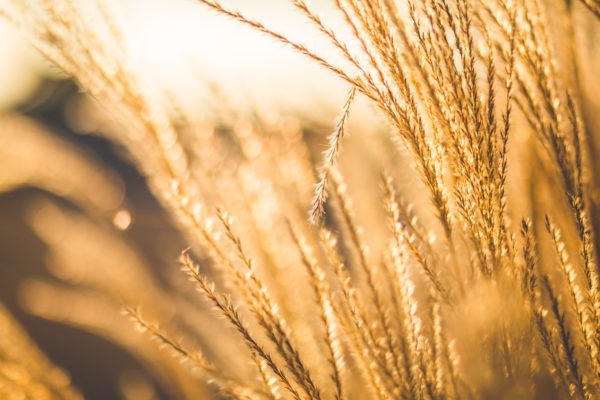Organic foods have surged in popularity over the past few years… there is no doubt about that. Supermarkets everywhere are quick to promote their organic products, friends are sharing all-organic recipes of their favorite meals, and farmer’s markets and small family farms are making a noticeable comeback.
…And all of this is occurring for good reason. While there will always be skeptics out there, considerable research has shown the value of buying organic foods over non-organic foods. Today, we’re going to dive into the benefits of choosing organic wheat over conventionally-grown wheat.
Organic vs. Non-Organic: What’s the Difference?
Before we get into the specific differences between organic and conventionally-grown wheat, it is important to understand what the term “organic” actually means.
The word “organic” pertains to the way farmers grow and process agricultural products like fruits, veggies, grains, dairy products, and meats. Organic farmers don’t use conventional methods such as spraying pesticides and herbicides to control weeds and fertilize their crops.
They also stray from using antibiotics, growth hormones, and genetically-engineered ingredients. Overall, organic farming practices are designed to preserve our environment and promote sustainability by encouraging soil and water conservation and reducing pollution.
The Difference Between Organic Wheat & Conventionally-Grown Wheat
…So what’s the difference between organic wheat and conventionally-grown wheat? Plenty! Let’s explore a few:
- Contains No Synthetic Pesticides: Organic wheat is free of potentially harmful pesticides that are used on conventionally-produced wheat. Organic wheat farmers use natural methods such as insect traps, predator insects, or beneficial microorganisms, rather than pesticides, to control crop-damaging pests.
- Free of Synthetic Fertilizers: Many conventional farmers use synthetic fertilizers in order to quickly supply essential nutrients to their soil. However, these synthetic fertilizers can damage the natural make-up of the soil and contribute to pollution. Organic wheat is grown using organic fertilizers. Although organic fertilizer takes longer to supply nutrients, it is much more sustainable for the soil and environment as a whole.
- Typically Grown by Smaller Farms: In many cases, organic wheat is grown by small family farms, rather than large industrial farms. Smaller family farms are less likely to use pesticides, hormones, antibiotics, and other harmful additives on their crops and generally recognize the importance of protecting the environment and their land.
- GMO-Free: Organic wheat does not contain any genetically modified organisms. According to numerous studies, GMOs cause environmental contamination, are associated with various health problems, and can create dangerous side effects.
Why Should You Go Organic?
People choose to “go organic” for many different reasons. However, when it comes to choosing organic wheat, there are a few primary factors that people take into consideration:
Pesticides
Many people choose to go organic in order to limit their exposure to synthetic pesticides that conventional farmers use to protect their crops from molds, insects, and diseases. Organic wheat farmers protect their crops from pests using more natural methods such as careful crop selection and crop rotation.
Additives
In order for a food to be considered “organic”, it must not contain any food additives, processing aids, and fortifying agents such as preservatives, artificial sweeteners, colorings, and flavorings.
Environment
Organic farming practices are designed to reduce pollution and conserve water and soil quality.
Organic Wheat in Your Vodka
With Hope Wheat Vodka, you can drink just as organically as you can eat! Our Wheat Vodka is organic, non-GMO, and gluten free. Flavorful and fragrant, Hope Wheat Vodka is perfect for mixing up a delicious Bloody Mary or creating fruit, veggie, or herbal infusions.


